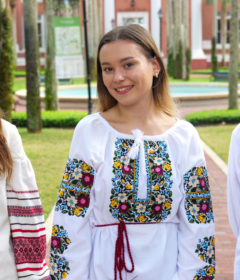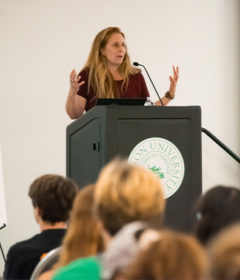Soldiering Toward Success
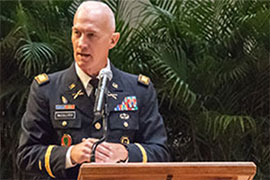
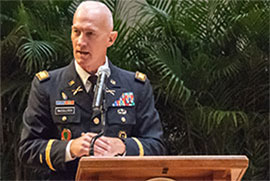
Back at the start of the Fall 2018 semester, Retired Lt. Col. Oakland McCulloch was optimistic. The number of cadets in his program, as well as first-year students, continued to swell. Meanwhile, the quality of those participants was at a virtual all-time high.
McCulloch, the recruiting operations officer for the Army Reserve Officers’ Training Corps at Stetson, talked about following the acronym SAL — Scholar. Athlete. Leader. — and attracting bright, ambitious and students who “want to serve their country.” He noted at the time that “some of these kids could have competed for West Point.”
By this spring, McCulloch’s autumn hope for Stetson Army ROTC had become real — and with Stetson Army ROTC part of a team that actually competed at West Point.
During an advanced Ranger Challenge military skills competition at the United States Military Academy, April 11-14, Stetson contributed to Eagle Battalion finishing 32nd among 49 teams worldwide. Included were ROTCs from around the country and members of the Academy, along with representatives from nations such as Australia, Japan, England, Germany and Ireland in an event where “just to go is pretty amazing,” as McCulloch described.
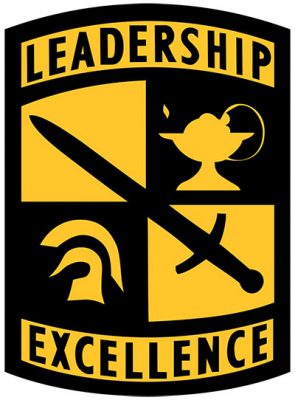
Eagle Battalion is one of the nation’s largest, mostly comprising cadets from Embry-Riddle Aeronautical University (approximately two-thirds) and Stetson (nearly one-third) plus Bethune-Cookman University and Daytona State College. Eagle Battalion had advanced to West Point by virtue of a standout performance at another Ranger Challenge in January, with its two teams finishing second and seventh among a total of 59. That second-place team earned the privilege of continuing on to West Point.
Stetson first-year student Ella Kerchner competed at West Point; fellow first-year students Alphonso Houston and Benjamin Little competed along with Kerchner in January.
Additionally, in January, Eagle Battalion was named a MacArthur Unit Award winner, as the best battalion in a region that encompasses all ROTC programs in Florida, Georgia, Mississippi, Alabama, Louisiana, Puerto Rico and the Virgin Islands. The U.S. Army Cadet Command and the Gen. Douglas MacArthur Foundation jointly presented the award.
Criteria included general university support, academic performance, college athletic participation, physical fitness and military training, among other components. Eight battalions were recognized from the 275 senior ROTC units nationwide.
“The whole idea here is to let the cadets get as much as they can out of this program to prepare them for whatever they’re going to do next, whether it’s active duty, National Guard Reserve or to be a leader in the Army,” McCulloch commented. “And the more we let them see what the Army looks like, and that we strive for perfection — although nobody is perfect — that’s going to help them in the future when they go out there as a brand-new second lieutenant.”
Notably, McCulloch said those words in late April, less than one month before the annual Army ROTC Eagle Battalion Commissioning Ceremony on campus. Army ROTC produces 75 percent of all Army officers across the United States. At the ceremony on May 10, four Stetson graduates will be commissioned as second lieutenants.
Such an event prompts more reflection by McCulloch.
“It’s amazing to me to watch them come in,” he said, “and watch them grow over four years and walk out of here as a lieutenant and be in charge of the greatest soldiers in the world.”
–Michael Candelaria
Army ROTC at Stetson
- First-year cadets at Stetson are required to take a one-hour ROTC class weekly and a two-hour lab, along with physical training three early mornings per week. As the cadets progress each year, those requirements are raised. Field training also is mandated for all, with a 32-day leadership course at Fort Knox, Kentucky, occurring between the junior and senior years.
- Upon completion of the program, military-service contracts come with an eight-year commitment, where cadets may select their specific service area. If they choose active duty, at least the first four years must remain in active duty. If Reserve or National Guard duty is selected, cadets must remain in that service for their entire eight-year commitment.

